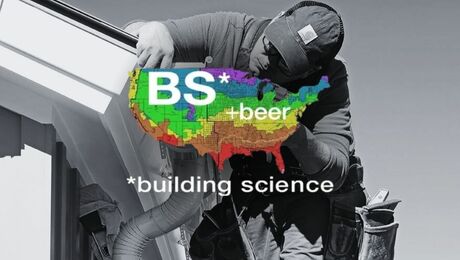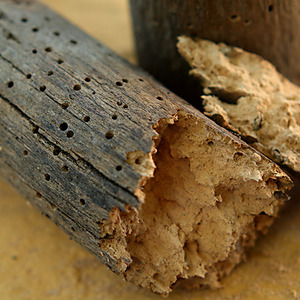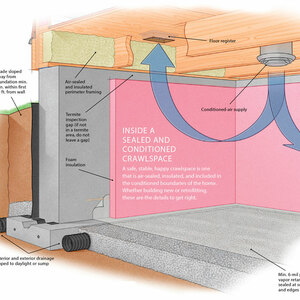*
First some background. I live in Northern Nevada, the driveway is 5 years old and 5 inches thick with a smooth finish. The portion of the driveway where I park my truck has started to break up, the driveway was fine a month ago before the snow started.
When I shoveled the snow after the last storm, the top 1/8 inch of the driveway is crumbling away. The damage is in strips where the tires on my pickup normally run. I think it may have been caused by the heavy salt and sand we had on our streets in combination with the alkali mud off of my truck. Is this possible?
I have two questions:
How do I stop it from getting worse?
What do I do to fix it this spring?
Thanks, Larry Storm


















Replies
*
Larry: "alkali mud off of your truck" won't hurt concrete. Concrete is alkali - acid can hurt it, not alkalis. Sounds like the surface is spalling due to trapped water freezing and expanding. Was there air entrained into the mix? That is done to give the ice somewhere to expand to. Ask your local concrete yards if any of their sealing products would help reduce spalling by keeping out the moisture.
*David, I don't think there was any air in the mix (not sure, but I didn't ask for it when I poured the concrete, is it a standard practice or a special order?) The rest of the 3 car wide driveway is fine, the only part that is spalling is the area where I park my truck. The snow and ice did sit on the concrete for about two weeks in that area, could that have contributed to the spalling?Larry
*Larry, was that part of the pour from a different concrete truck?
*Calvin, That section of the driveway was poured in two pieces each about 12' by 16'from different trucks but the same company, roughly one week apart. Both pieces are spalling. but the other 7 pieces of the driveway are not. Larry
*Larry, Concrete that is worked too much during finishing, or that had water and or mortar sprinkled on the top cuz it was too far gone to close up will peel. In cold climates it usually happens in the first winter. A diff. mix and a brief shower at the time of the pour can do it too. I don't know if you can stop it till spring, and adhering skim coats of no stone patch is not guaranteed. Color and texture of the patches will be way diff. Maybe someone will offer up a better solution. Best of luck.
*Larry: Re: standard practice. For an outdoor pour in a freezing climate, any concrete sub ought to spec entrained air IMHO. But if you just called the batch plant and said, 1-1/2"-, 4" slump, 5 sack then they wouldn't have put in the additive and whipped it up (it's a few bucks per yard). They wouldn't know if it is for an outside or inside slab, nor if you wanted to spend the money. I suspect that next time, it will seem worth the few extra bucks. And as Calvin points out, there are many on-site ways to ruin perfectly good concrete from the truck.I suspect you are seeing the spalling under the tire tracks first because of the combination of weathering and mechanical stresses. If you give it a few more years, the rest of the driveway may begin to match :-( That said, if you pursue some sealing or resurfacing compound you might do a little patch this summer to see if it works and if so, do the whole driveway the following summer, not just the part that looks bad now. -David
*Thanks for the advice.Larry
*Larry,Once you determine the extent of the damage, maybe one or two winters, you may want to look into having the whole driveway resurfaced. There's a proprietary product that mixes epoxy binder and different decorative aggregates and is applied to the concrete. If you're interested, email me and I'll see if I can find the franchise name or a number you can call for a dealer in your area.Eric
*
First some background. I live in Northern Nevada, the driveway is 5 years old and 5 inches thick with a smooth finish. The portion of the driveway where I park my truck has started to break up, the driveway was fine a month ago before the snow started.
When I shoveled the snow after the last storm, the top 1/8 inch of the driveway is crumbling away. The damage is in strips where the tires on my pickup normally run. I think it may have been caused by the heavy salt and sand we had on our streets in combination with the alkali mud off of my truck. Is this possible?
I have two questions:
How do I stop it from getting worse?
What do I do to fix it this spring?
Thanks, Larry Storm